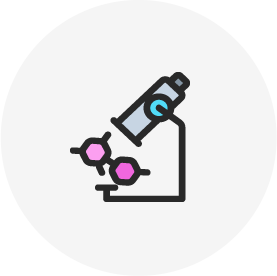CancerFind™

1. Simple Test
Detection of multiple cancer types
through a simple blood test
- 8 solid cancer types (colorectal, gastric, liver, pancreatic, lung, breast, ovarian, prostate) are examined simultaneously in one blood draw.
- By detecting abnormal characteristics of the genome derived from cancer cells, it is possible to determine the presence or absence of cancer-derived DNA and predict the primary tumor site based on those characteristics.

2. Accurate Analysis
Genome precision analysis using latest artificial intelligence (AI) techniques
- Genome data based on next-generation sequencing (NGS) and analysis technology using artificial intelligence provide fast and accurate results.
- In order to find a trace amount of cancer-derived DNA, various characteristics that appear throughout the genome are comprehensively analyzed. In particular, it maximizes performance by comprehensively analyzing the characteristics of methylation, CNV, and DNA fragments, which are known to reflect the differences between cancer types.
Recommended for
- 1. Adults seeking cancer screening at early stage.
- 2. Individuals with a family history of cancer or concerns about cancer development.
- 3. Adults willing to take cancer screening tests but fear invasive endoscopy or imaging tests with radiation exposure.
- 4. Individuals needing further testing because of inconclusive results from other screening tests.




















